April 26, 2018
by Dr. Bill Hudson, Head of School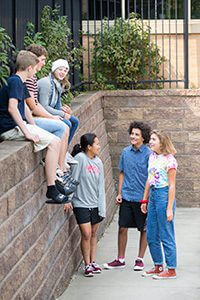
At the dinner table, we have a tradition of sharing our day with one another. Among other topics and questions, we often ask the kids, “What did you like best about your day?” Inevitably, the response is one of three possibilities: phy ed class, lunch, or recess. Obviously, we hope it’s about a riveting discussion about a novel or an exciting discovery during a science experiment. However, as an educator, I am okay with their response. Physical activity, free play, unstructured time, and nutrition are all necessary aspects of a student’s life, no matter the age. This is also true for adults!
In a few weeks, we will gather at the historic JX in Stillwater for our annual Spring Auction. It is our only school-wide community builder solely for the grown-ups in our community and our only fundraising event of the year. The newly opened JX is a beautiful setting with wonderful views and plenty of space for socializing and joy-raising. We will have many items in the silent auction, fun games of chance, and some unique experiences in the live auction. As is our custom, we will end the auction with an opportunity to fund a specific need of the school.
Through this Fund A Need portion of the evening, together over the past several years we’ve raised more than $300,000 to enhance the educational experience of our students. Past projects include the Digital Fabrication Studio (an early iteration of the Makerspace), Virtual Classroom, extensive bathroom renovations, sound, lighting, and seating replacement in the Blackbox Theatre.
Read More
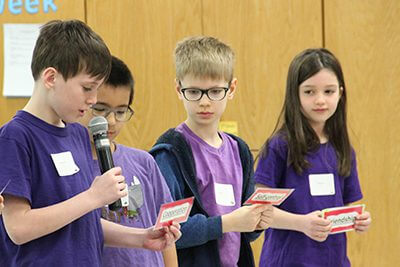 by Dr. Bill Hudson, Head of School
by Dr. Bill Hudson, Head of School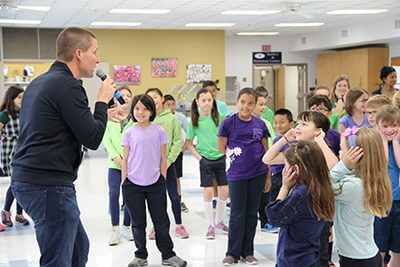 Yesterday’s CHAMP assembly was yet another special and memorable morning for the MPA Lower School. Bryan Skavnak, founder of Be The Nice Kid, visited campus and told stories of doing right, having courage, and being the nice kid.
Yesterday’s CHAMP assembly was yet another special and memorable morning for the MPA Lower School. Bryan Skavnak, founder of Be The Nice Kid, visited campus and told stories of doing right, having courage, and being the nice kid.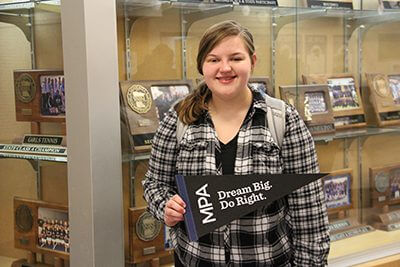 Thank you for sharing your love of MPA throughout all of April! We received more than 100 reasons why you love MPA and are elated to see all of the things that makes our community special and impactful. Because of how many replies you sent, we will be sharing them periodically on MPA’s social media, so keep an eye out for yours! For now, enjoy a few to share the joy:
Thank you for sharing your love of MPA throughout all of April! We received more than 100 reasons why you love MPA and are elated to see all of the things that makes our community special and impactful. Because of how many replies you sent, we will be sharing them periodically on MPA’s social media, so keep an eye out for yours! For now, enjoy a few to share the joy: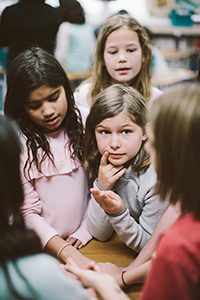 by Erica Brewinski ’96, Middle School Director
by Erica Brewinski ’96, Middle School Director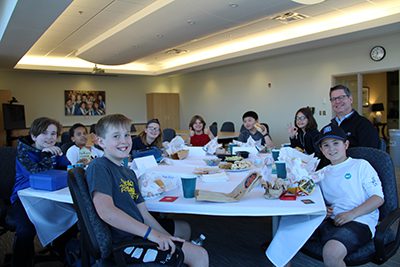 Meet Henry S., MPA’s Head of School for the Day! Henry is a fifth grader who loves solving challenging math problems and skiing on MPA’s Alpine Ski team. He spent the day exploring the many daily components of the school, from business in the Athletics Office to a tour of the school (including the roof and its solar panels).
Meet Henry S., MPA’s Head of School for the Day! Henry is a fifth grader who loves solving challenging math problems and skiing on MPA’s Alpine Ski team. He spent the day exploring the many daily components of the school, from business in the Athletics Office to a tour of the school (including the roof and its solar panels).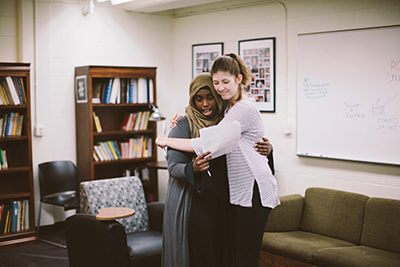 Our next upcoming admission event is Lunch at MPA on Tuesday, May 15, starting at 11:30 AM! Invite a friend, neighbor, colleague, or anyone you know who shares your educational values. We can’t wait to meet them!
Our next upcoming admission event is Lunch at MPA on Tuesday, May 15, starting at 11:30 AM! Invite a friend, neighbor, colleague, or anyone you know who shares your educational values. We can’t wait to meet them!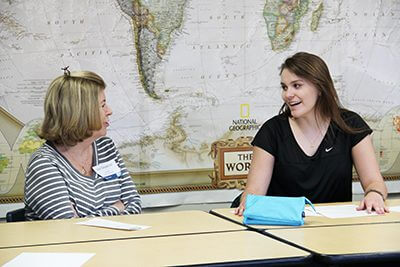 We had a wonderful time hosting everyone on campus for the first annual Upper School Grandparents And Special Friends Day! This day developed into an event specially designed for the Upper School division, where all of our visitors experienced a unique glimpse inside our older students’ life at MPA! We had grandparents and friends across all of the Upper School, in classes from Spanish to history and more.
We had a wonderful time hosting everyone on campus for the first annual Upper School Grandparents And Special Friends Day! This day developed into an event specially designed for the Upper School division, where all of our visitors experienced a unique glimpse inside our older students’ life at MPA! We had grandparents and friends across all of the Upper School, in classes from Spanish to history and more.
 David Siegel ’04 is a techie, philosopher, and creative thinker. Blending his love of technology with a sensitivity to human flourishing, he is driven to understand how technology affects people. “I’m naturally skeptical of the techno-utopian tenet that technology will inevitably create the world we want,” he shares, “so I’m concerned with building technologies consistent with our core values.”
David Siegel ’04 is a techie, philosopher, and creative thinker. Blending his love of technology with a sensitivity to human flourishing, he is driven to understand how technology affects people. “I’m naturally skeptical of the techno-utopian tenet that technology will inevitably create the world we want,” he shares, “so I’m concerned with building technologies consistent with our core values.”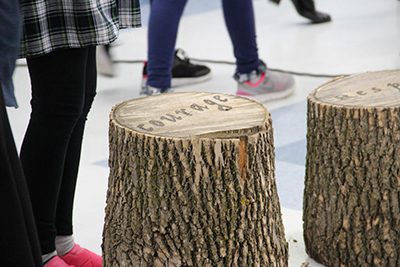 Wednesday’s Lower School CHAMP assembly included a warm reading of “The Hugging Tree” by Mr. Wilson, time to brainstorm ideas about resilience as a division, and a complete surprise unveiling of the newest Peace Garden additions! Upper School student Connor McFarland engraved stumps from tees found fallen with every CHAMP trait to enhance the MPA Peace Garden. Bela Larsen and Jaeden McFarland will be putting the finishing touches on them just in time for spring weather!
Wednesday’s Lower School CHAMP assembly included a warm reading of “The Hugging Tree” by Mr. Wilson, time to brainstorm ideas about resilience as a division, and a complete surprise unveiling of the newest Peace Garden additions! Upper School student Connor McFarland engraved stumps from tees found fallen with every CHAMP trait to enhance the MPA Peace Garden. Bela Larsen and Jaeden McFarland will be putting the finishing touches on them just in time for spring weather!